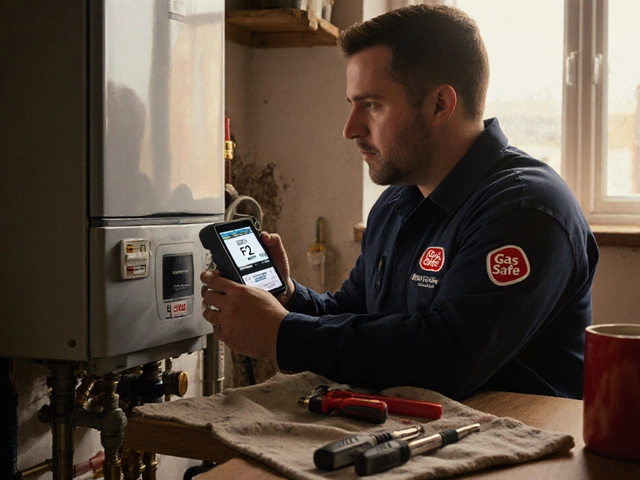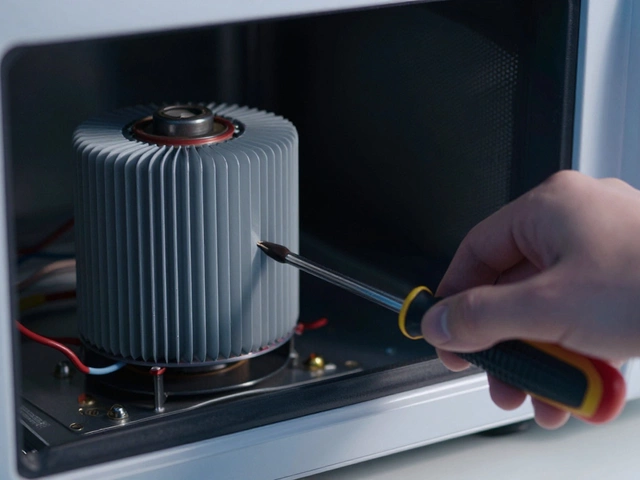If your heating or cooling system stops working, the first thing you want is a simple fix that gets the comfort back fast. At Bognor Regis Appliance Repair Experts we see the same problems over and over, so we’ve pulled together the most common issues and the quickest ways to address them.
Heat pumps that won’t blow warm air are usually dealing with a blocked filter, a low refrigerant charge, or a faulty thermostat. A quick look at the filter and a clean can often restore airflow. If the air stays cold, the next step is to check the outdoor unit for ice buildup – a defrost cycle problem is a usual suspect.
Air conditioners often stop cooling because of a dirty coil, a bad fan motor, or low refrigerant. Turn off the unit, clean the indoor coil with a soft brush, and see if the fan runs smoothly. If the AC still feels warm, it’s time to call a professional for a refrigerant check.
Furnaces that keep tripping the high‑limit switch usually have a blocked vent or an overheated heat exchanger. Clear any debris from the vent pipe, and make sure the blower runs without strange noises. A loud bang or a strong smell of gas means you need a qualified tech right away.
Most minor HVAC hiccups can be tackled in under an hour. Start with the easy stuff: replace or clean filters, tighten loose wires, and reset breakers. For heat pumps, our article “Heat Pump Not Blowing Warm Air? Troubleshooting & Common Fixes” walks you through checking the outdoor fan and resetting the system.
If you notice a burnt smell, sparking wires, or water leaking from the unit, stop any DIY work immediately. Those signs point to electrical or refrigerant issues that need certified handling. Our post “Can I Repair My Boiler Myself? DIY Boiler Fixes and What to Avoid” explains why certain jobs are best left to experts.
When you do need a pro, look for a Gas Safe registered engineer for boilers and a qualified HVAC technician for heat pumps and ACs. A quick call can save you from costly mistakes and keep your warranty intact.Regular maintenance is the real secret to fewer breakdowns. Schedule a seasonal check‑up, clean filters every 30 days during heavy use, and keep the outdoor units free of leaves and debris. Following the tips in “Heat Pump Lifespan in the UK” can add years to your system’s life.
Bottom line: start with a filter change, listen for odd noises, and reset the breaker. If the problem persists or you’re unsure, give us a ring. Our fast, reliable service gets your heating or cooling back on track without the hassle.

Is your heat pump running but not cooling your home? Learn the real causes, expert troubleshooting tips, and practical solutions to get your comfort back.

Thinking about replacing your electric oven on your own? This article breaks down what you need to know about doing it yourself— from basic safety to common pitfalls. Learn how tricky the process can get, which tools you might need, and when it's smarter to call a pro. Get tips to save money and avoid kitchen disasters. Designed for anyone who values a good meal and a working oven.

Considering replacing your electric oven on your own? Before you jump into action, it's crucial to understand the steps involved and the potential challenges you might face. From ensuring safety precautions to understanding the basic wiring, this article delves into what you need to know. We'll discuss not only the tools and skills required but also when it's better to call in a professional. By the end, you'll have a clearer picture of whether you should tackle this task yourself or seek expert help.

Not all plumbers can fix boilers-only Gas Safe registered engineers can legally work on gas systems. Learn when to call a plumber vs. a heating engineer, how to verify qualifications, and what to expect from a boiler service.

Stuck with a broken boiler and a cold house? This guide shares quick, practical steps to keep your home warm without a working boiler. Learn about safe heating alternatives, ways to trap heat, and smart tricks for getting through chilly nights. Find out what to avoid, when to call a professional, and how to prep for future breakdowns. Perfect for homeowners who want to stay safe and comfortable during a boiler emergency.

Fixing your own microwave might seem easy, but the high-voltage capacitor inside can deliver a lethal shock-even when unplugged. Here's why DIY repairs are dangerous and what you should do instead.